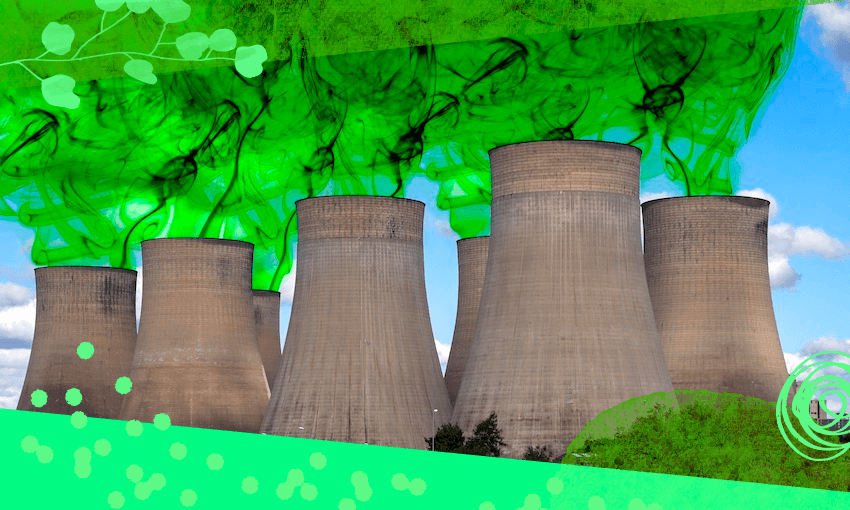Climate disinformation and propaganda can be dangerous – but that doesn’t mean people are helpless.
This is an excerpt from our weekly environmental newsletter Future Proof. Sign up here.
In 2023, an American speaker came to visit New Zealand. He did some talks at community-hall type locations around the South Island. He was interviewed on the radio. Then he went home.
Foreign speakers come to Aotearoa all the time, but researcher and author Byron Clark did some more digging. “[Farming group] Groundswell invited this American scientist, Tom Sheehan, to talk about how methane doesn’t contribute to warming,” he says. “It’s part of a widespread effort to create disinformation about methane emissions in New Zealand, which are a major portion of our carbon emissions.”
Clark has conducted research into the embedded ecosystem of conspiracy theories, especially those that became prominent during the Covid pandemic; conspiracy connected radio station Reality Check Radio has a show called “Greenwashed” that often spreads doubt about UN sustainability goals, city density, sea level rise and emissions counting. Now, with most restrictions around Covid gone, some of those groups are turning their attention to the climate.
“There’s a lot of fear mongering around the climate response, and those ideas spread fast,” Clark says. “The climate response is treated like a grand plot, a means to control people.” While some of this information is on niche channels like Reality Check Radio, Sheehan was also interviewed on Newstalk ZB; gradually, these ideas can make their way into broader society.
This disinformation can be actively harmful to the climate movement, especially when people who don’t believe in climate action influence political decisions. That’s why Clark and teacher and librarian Mandy Henk are running a Climate Disinformation Night School at non-profit Tohatoha, beginning in April.
“Bringing [Sheehan] to the country is an example of community education – it’s just from another side,” Henk says. Community or folk education, with groups of people getting together to learn about things that everyone can benefit from, has a long tradition, including in the Appalachia area of the US, where Henk is originally from. “It’s a powerful way to build community – we want to make this friendly to people in the climate movement, activists and advocates.” The course will be delivered with short recorded lectures, then longer discussions, with times that work for both evenings in the US and in Aotearoa.
Disinformation is a “messy term” and difficult to define, Henk says. “The way I conceptualise it is that disinformation is an overall tactic, designed to create division and confusion and organically spread narratives.” There’s the kind of conspiratorial disinformation that Clark researches, but there’s also more traditional propaganda, often spread by fossil fuel companies in mainstream media, without resorting to Telegram channels and alternative radio stations.
Many fossil fuel companies promote the idea of widespread geoengineering, instead of cutting emissions, in order to stymie accusations that they are responsible for climate change. These companies have profited from coal, gas and oil while spending money on advertising that denies global heating, for decades. Often, the denial of climate science is just to procrastinate action, over and over again.
Regardless of the source, climate disinformation and propaganda is dangerous, but that doesn’t mean people are helpless. “It’s not much value saying [disinformation] is a problem if we don’t have solutions,” Henk says. If there’s one thing the last few years have created, it’s lots of cause for research into countering disinformation. So what’s the best way to respond to climate information you’re not sure about, or to people who are sharing it?
“There are two things to internalise: first, figure out who is behind the information, who is funding it, what does the evidence say?” Henk explains. But if you’re seeing something that is confusing or provoking, you can also simply exercise some “click restraint”.
“Take a beat, stop, think, find some quality information before you waste your time on bullshit.”
Henk and Clark hope that people who take part in their course will come out of it with strategies to individually respond to disinformation, as well as to make their movements or organisations responsive to it as well. “We want to give people tools to engage in this topic, and be smart and strategic about it,” Henk says.

